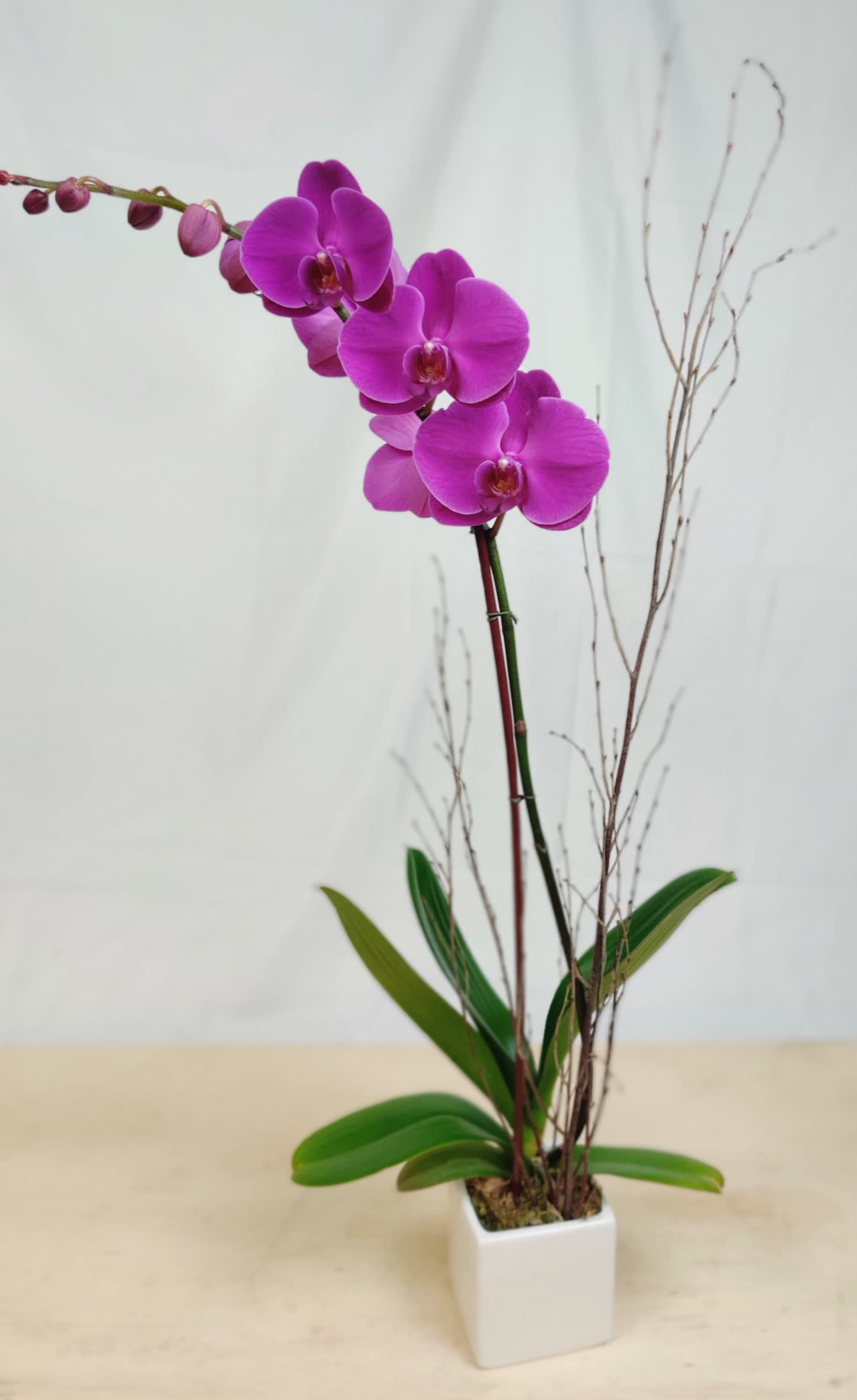When I think about Lent, I’m often reminded of the instructions that one of my mentors as a priest gave to the Flower Guild at the first church I served, where she was the interim rector at the time. They had asked her whether she had guidance for flowers during Lent. She answered that many churches didn’t have flowers during Lent at all, and they were shocked. They had always had flowers in Lent before… So she came up with a compromise proposal: Flowers would be fine, but they should try for an aesthetic she summed in a phrase that’s stuck with me: Lent was, she said, a season for “desert beauty.”

The Flower Guild pondered this at their monthly meeting, put their heads together, and came up with a stunning idea: on each side of the altar, they placed a single, pale purple orchid, in an undecorated pot, and they carefully tended each flower through the whole season of Lent.
On Tuesday, I sat in a clergy meeting as priests and deacons shared their Lenten practices of giving things up and taking them on. The final priest to share, who serves a parish downtown, offered her favorite part of Lent: at the end of each day, she writes down the most beautiful thing she saw that day. For her, every day of Lent is punctuated, as she walks through the crowded streets of Back Bay and the barren trees of the Public Garden, with the question: “Is this the most beautiful thing I’ll see today? What about this?”
The forty days of Lent reflect the forty days Jesus spent in the wilderness, in fasting and prayer, facing temptation. We journey through these forty days, too, facing our own small temptations, praying our own avid prayers. Perhaps we learn something about ourselves. Perhaps we grow closer to God. But in this muddy season of Lent, in this long, grey season of Lent, in this taxing, chocolate-free (coffee-free, wine-free) season of Lent—whatever it may be for you—it can be hard to see the beauty.
And yet.
There is a “desert beauty” in life stripped down to its essentials, a beauty revealed when a few luxuries are given up or a new commitment to pay attention is made. It’s the beauty of your life, as it is, without the distractions. It’s the beauty people are seeking when they go out to the wilderness, the beauty you can sometimes find when you’re left alone with God, and the world becomes quiet enough for you to hear the voice of God speaking to you: “This is my beloved child, in whom I am well pleased.”
Because you are (God’s beloved child.) And God is (well pleased with you.) And wherever these forty days of Lent take you, however muddy or beautiful, however loud or quiet it may be, the Holy Spirit is there with you, inviting you always to search for and to tend to and to rejoice in the small, beautiful things of the world.
